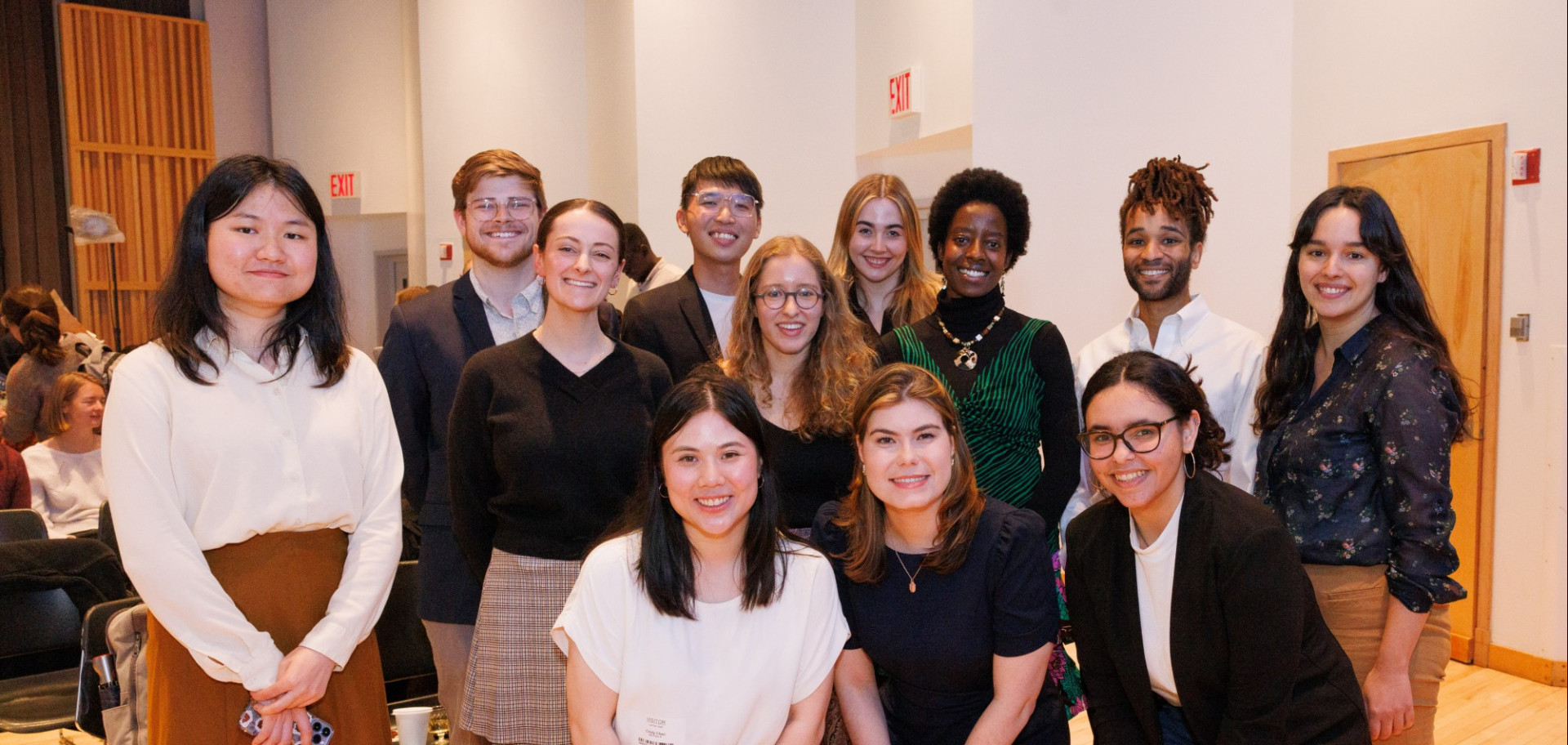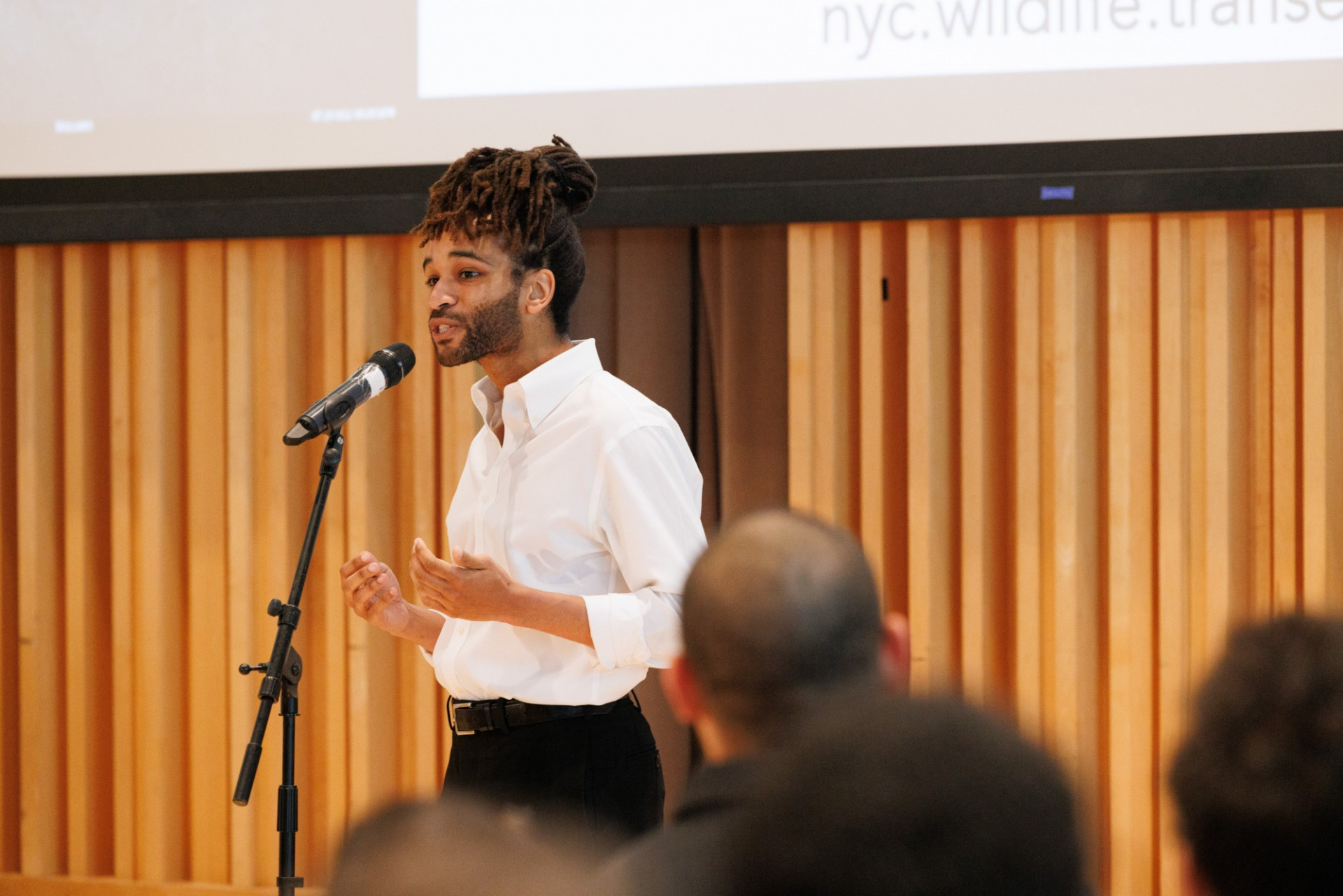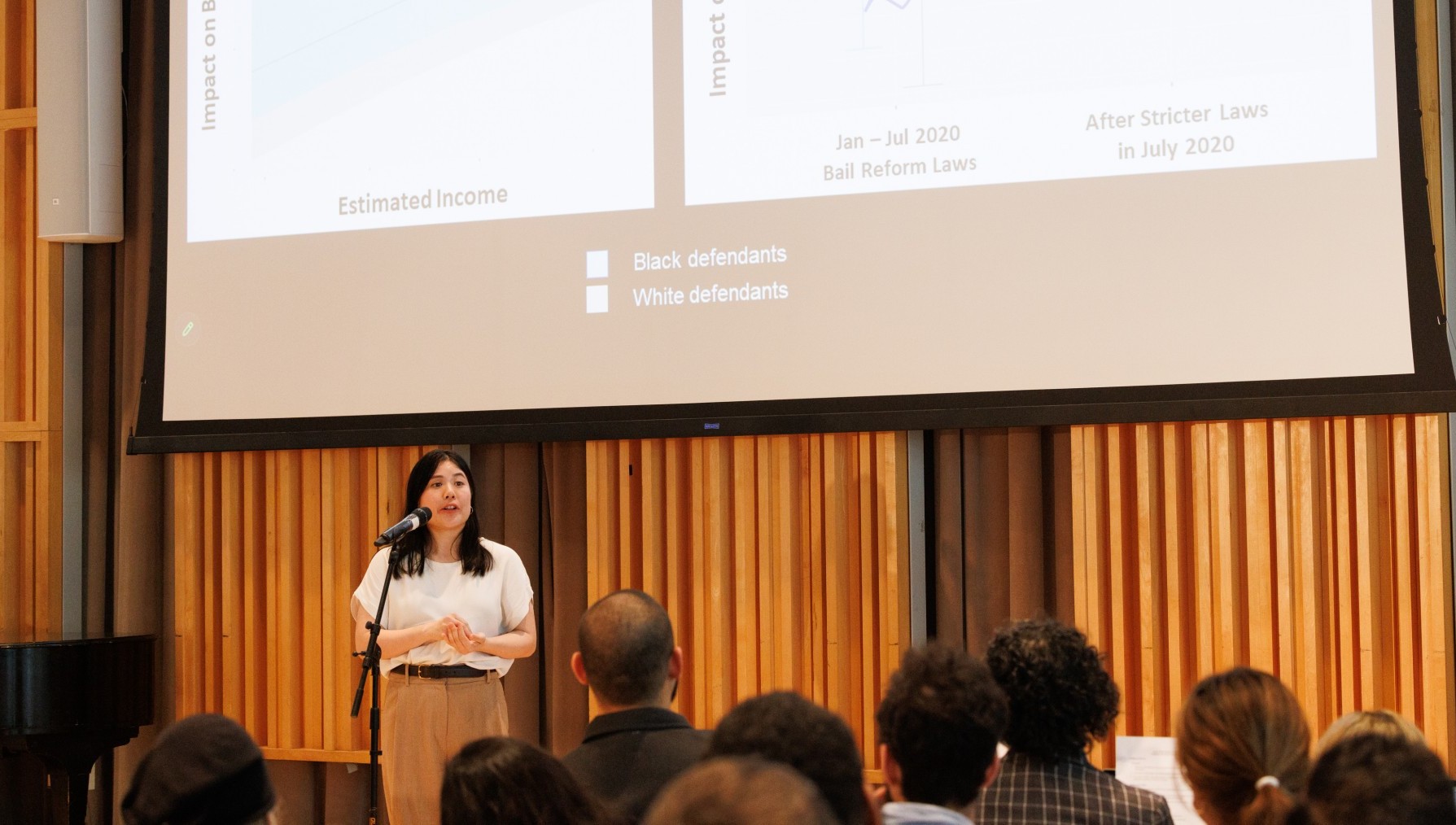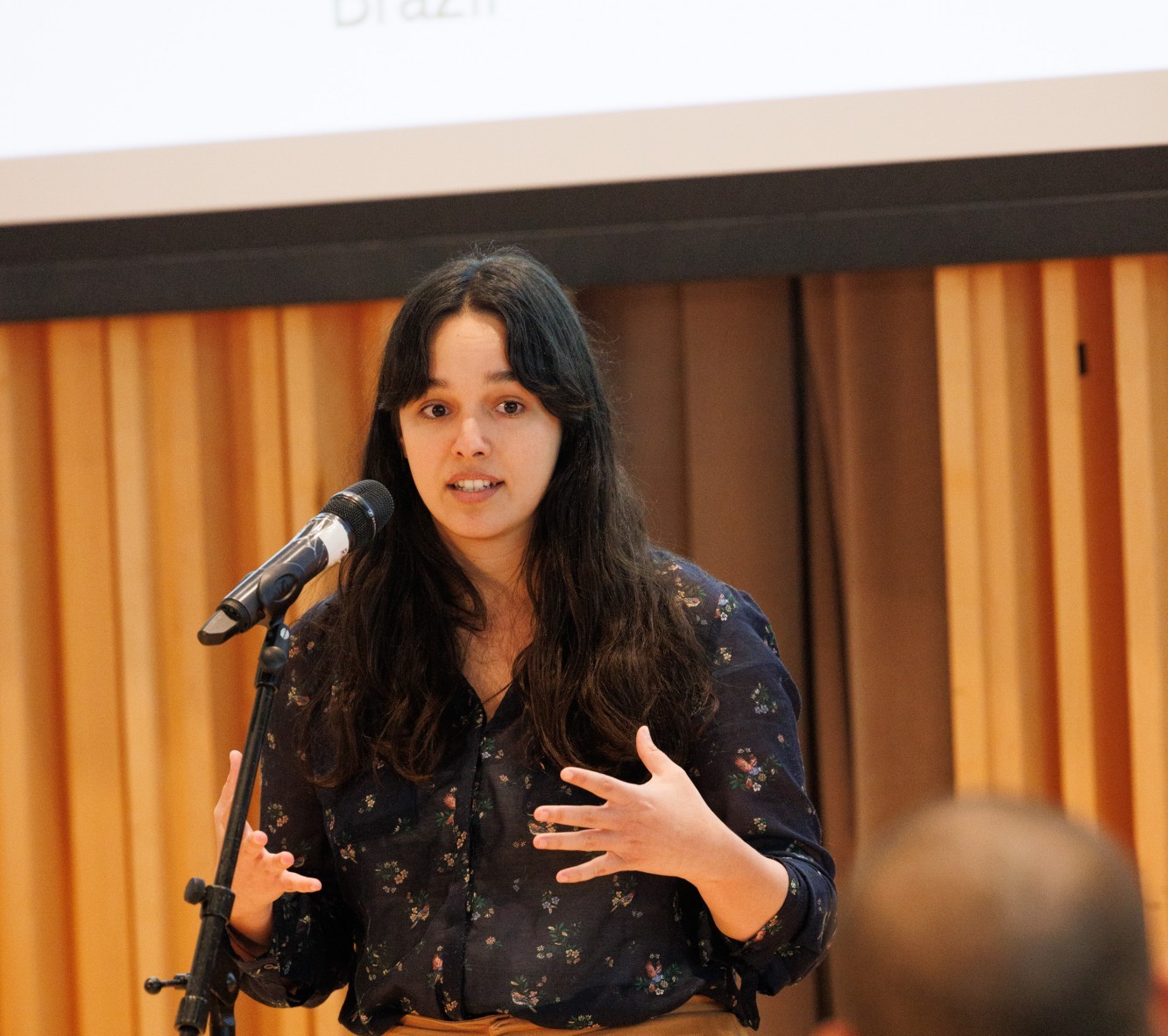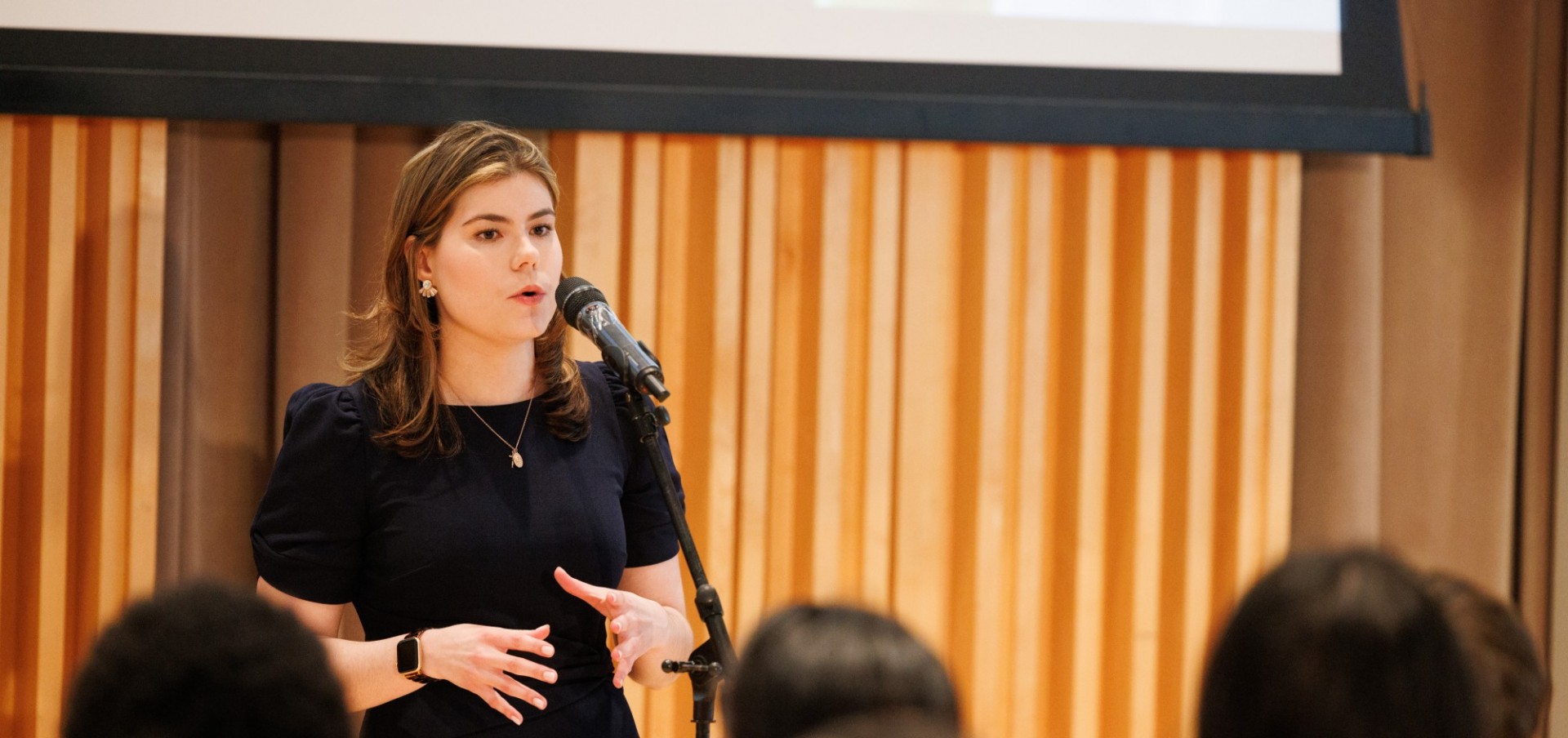GSAS Master’s SynThesis Competition
The annual GSAS Master’s SynThesis competition is an opportunity for MA students from across the Arts and Sciences to showcase their research and presentation skills in a relaxed and collegial environment.
The Competition
Can you present your thesis research to a general audience in under three minutes using a single slide? GSAS invites all master's students who are writing a thesis to participate in the annual GSAS Master's SynThesis competition. Read about the 2023 competition here.
Join us for the 2024 competition on Thursday, April 25, 2024 from 4:00 to 6:00 pm in Low Library Faculty Room. First-, second-, and third-place awardees receive prizes of $1,000, $500, and $250, respectively.
2024 GSAS Master's SynThesis Finalists:
- Lulu Bird - Global Thought
- Agustina Carvallo - Quantitative Methods in the Social Sciences
- Crystal Cheng - East Asian Languages and Cultures
- Ariel Urim Chung - Oral History
- Taylor Francisco - Quantitative Methods in the Social Sciences
- Isabella Giancola - Economics
- Anusikha Halder - English and Comparative Literature
- Lucy Holland - Ecology, Evolution, and Conservation Biology
- Sanjana Malhotra - Sociology
- Alice Mee - Russia, Eurasia and East Europe: Regional Studies
- Nathan Motulsky - English and Comparative Literature
- Leyre Santos Vidal - European History, Politics, and Society
- Jasmine Ureno-Diaz - American Studies
- CiCi Wang - East Asia: Regional Studies
Want to be in the audience? RSVP to join us in-person or to view the Zoom live stream.
Please write to [email protected] with any questions.
Applicants must be:
- Currently enrolled in an Arts and Sciences MA program, or must have graduated from an Arts and Sciences MA program no earlier than October 2023;
- Working on a thesis based on original research;
- In good academic and administrative standing; and
- Available to attend the in-person competition on Thursday, April 25.
The application for GSAS Master's SynThesis has closed. The application will open in February 2025 for the spring 2025 competition. See below to reference the 2024 application instructions.
To apply, applicants must submit a 300-word project abstract, appropriate for a non-specialist audience. The deadline to apply is Sunday, March 17.
Between 12 to 15 finalists will be selected to present their research to a general audience and a multidisciplinary panel of judges at the final competition on April 25. Finalists must participate in a preparatory workshop with GSAS staff prior to the competition. The workshop will be offered in early April.
Applications go through two rounds of review to identify finalists. In the first round, all submitted abstracts are reviewed by a GSAS staff committee, which will select the semi-finalists. In the second round, semi-finalists will complete brief video interviews.
At each stage of review, applicants will be evaluated based on the following criteria:
Comprehension and content
- Abstract/interview/presentation provides clear background and significance to the research question
- Abstract/interview/presentation clearly describes the research strategy/design and the results/findings of the research
- Abstract/interview/presentation clearly describes the conclusions, outcomes and impact of the research
Communication and engagement
- Project is communicated in language appropriate to a non-specialist audience, avoids jargon, and adequately explains technical concepts
- Research is communicated with enthusiasm and in an engaging manner
Presentation (for finalists)
- Quality of delivery of oral presentation
- Quality of the slide: Does it enhance the presentation? Is it clear, legible, and concise?
APPLY HERE by Sunday, March 17, 11:59 pm EDT: https://gsas-columbia-csm.symplicity.com/surveys/SynThesis2024
- A single static PowerPoint slide is permitted (no slide transitions, animations. or movement of any type).
- No additional electronic media (e.g., sound and video files) are permitted.
- Presentations are limited to three minutes maximum. Once three minutes is reached, the presenter will be asked to stop.
Click here to view recordings of prior years' winners.

